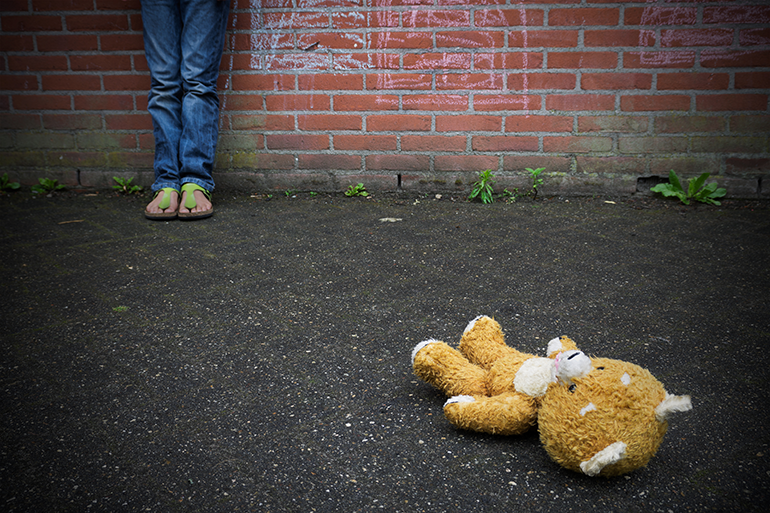
UBCO research has shown that when perpetrators are familiar, someone they trust, children who have experienced sexual abuse will often delay telling another adult.
Non-offending caregivers have a vital role to play
It's all about trust and a safe place.
New research from UBC Okanagan has determined if a child knows they have safe support from a trusted adult, it significantly increases the chances of that child disclosing they have been sexually assaulted. This likelihood is especially true when the offender is a family member or trusted caregiver.
Cassidy Wallis, a psychology doctoral student in UBC Okanagan's Irving K. Barber Faculty of Arts and Social Sciences, recently published research that shows what conditions would support a child if they have been sexually abused by someone close to them.
For her research, Wallis was allowed access to more than 200 RCMP archival sexual abuse files involving victims aged 0 to 18 years. In 92 per cent of these cases, the offender had a previous relationship with the child, with only eight per cent of cases being conducted by a stranger. Of these cases, 29 per cent resulted in a conviction and 71 per cent did not. These low rates, she says, can be explained by what is on average a delay of well over three years in reporting abuse.
"Research has shown that when perpetrators are familiar, someone they trust, children who have experienced sexual abuse will often delay telling another adult," says Wallis. "For several reasons intrafamilial abuse has been found to result in longer delays of disclosure compared to stranger offences."
Wallis says those reasons are compounded, often by fears of the consequences for their disclosure - such as leaving the family with no financial support or having siblings removed from the home.
But without disclosure, the abuse may continue for years.
That's why opening a window for discussion is extremely important but also very difficult. More importantly, once that window is open, it's vital that child is believed. If not, that opportunity for open discussion may be closed permanently.
"When a child discloses, often there is active disbelief. It is quite difficult for parents to reconcile that not only is the accused perpetrator a loved one but is also an abuser. There are also strong feelings of guilt. But it's up to that non-offending caregiver to accept what's been said and take responsibility for the care and treatment of the child."
When a formal disclosure is made to the police there is the opportunity for positive outcomes including an end to the abuse, access to resources and supports, and protection against abuse for future victims, says Wallis.
"One of the most encouraging and important findings of the current study is when a non-offending caregiver provides full support. This expedited the speed with which formal disclosures were made," says Wallis. "Increasing the speed with which a formal disclosure is made is essential so evidence is not lost and reports can be easily corroborated. Once a formal disclosure is made, resources can be obtained for the child and the abuser can be held accountable."
Wallis stresses that in the case of child sexual abuse, there is support for all families from the RCMP and in the Okanagan from the newly-established Child Advocacy Centre of Kelowna.
"Formal disclosure is so important in so many ways. It's not easy. Even in our study parents expressed that they were too embarrassed or just didn't know how to approach such sensitive topics with their child," adds Wallis. "But if parents can take one thing from my research it is my hope that they have open communication with their children around healthy and appropriate sexual behaviour. If you start those conversations early, children may feel more comfortable coming forward if something does happen to them."
Dr. Michael Woodworth, Wallis' supervisor and co-author of the paper, points out that the Child Advocacy Centre is a good example of the link between the university and its community partners. He also notes the organization is intended as a resource for all residents of the area and the centre provides support for all types of child abuse.
For those in need, or to find more information on the Child Advocacy Centre of Kelowna, visit: cackelowna.com
The research paper was published recently in Child Abuse and Neglect.
About UBC's Okanagan campus
UBC's Okanagan campus is an innovative hub for research and learning founded in 2005 in partnership with local Indigenous peoples, the Syilx Okanagan Nation, in whose territory the campus resides. As part of UBC-ranked among the world's top 20 public universities-the Okanagan campus combines a globally recognized UBC education with a tight-knit and entrepreneurial community that welcomes students and faculty from around the world in British Columbia's stunning Okanagan Valley.






